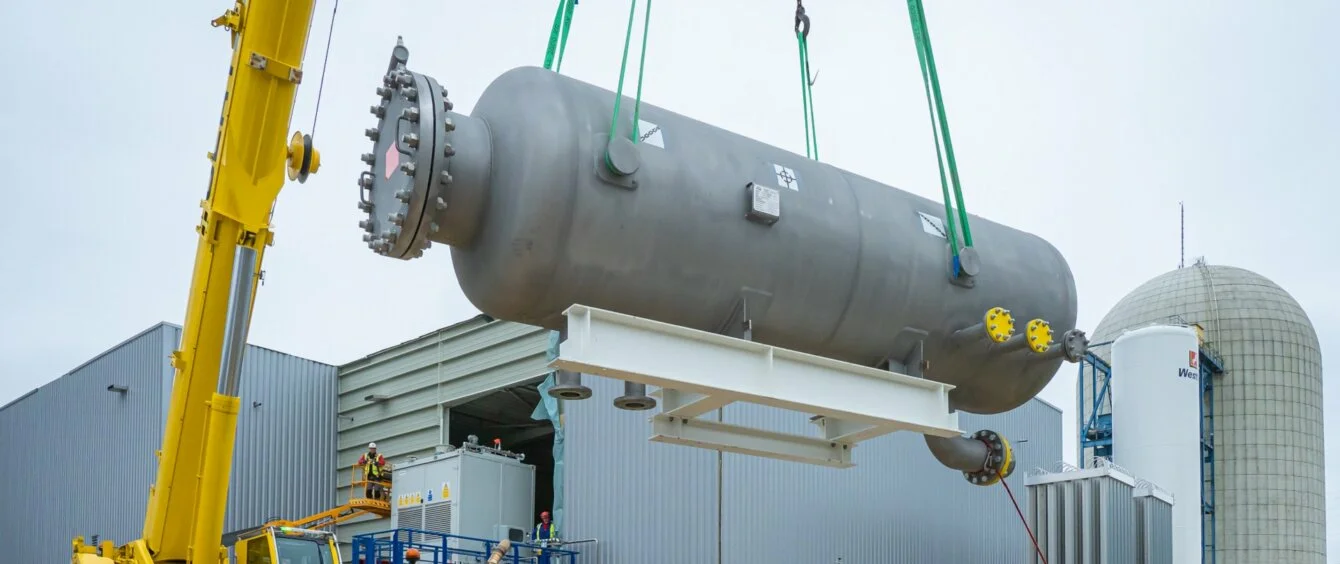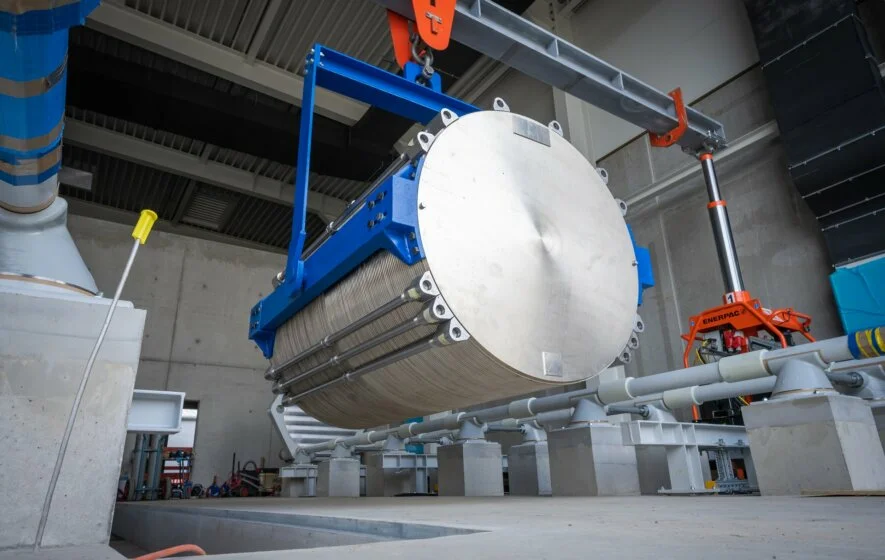Green hydrogen is considered a key en route to achieving carbon neutrality. Hydrogen produced with renewable energy is to contribute to reducing greenhouse gas emissions above all in industry and transportation. In some branches of industry – e.g. steel production – hydrogen serves not only as an energy fuel, but also as a chemical carbon substitute. Sustainable production of hydrogen is still quite expensive, whereas demand is low. However, estimates have both parameters changing significantly through 2030.
Hydrogen centres for sector ramp-up
Meeting mounting demand will require production to increase and, in particular, required infrastructure to expand. Therefore, it is crucial, especially during the hydrogen economy’s ramp-up, to focus projects on hydrogen hubs which have conditions conducive to covering the entire hydrogen value chain. In Germany, the Emsland region surrounding the City of Lingen is evolving into such a centre. It is where numerous spokes for green hydrogen production, transport and usage converge.
RWE is carrying out several pivotal hydrogen projects on the premises of the Emsland gas-fired power plant, with other companies active in the energy business and industry also planning hydrogen activities in the region. All stages of the value-added chain are covered.
Industry-scale hydrogen production
RWE is setting up a hydrogen electrolysis test facility with a capacity of 14 megawatts (MW) at its site in Lingen for about 30 million euros. The plant will be capable of producing up to 290 kilogrammes of green hydrogen from renewable energy sources every hour. The facility is slated to start operating in the autumn of 2023 to test two hydrogen electrolysis methods: alkaline and PEM (proton exchange membrane).
The project passed its first milestone at the close of March 2023: receipt of the electrolysis modules for a 10-MW high-pressure alkaline system manufactured by Sunfire. The pilot is rounded off by a 4-MW PEM electrolyser from Linde, which was delivered in June. RWE intends to leverage the experience gained via the pilot plant when running large-scale electrolysers in the future. All told, the Essen-based company plans to build two gigawatts (GW) of electrolysis capacity by 2030.
As part of the GET H2 Nucleus hydrogen project, a large-scale electrolyser is to be set up on the gas power station’s premises, just a couple of metres from the pilot facility – a major building block of a successful energy transition. In sum, 300 MW of electrolysis capacity are planned on areas surrounding RWE’s Lingen gas-fired power station, with expansion envisaged in 100-MW increments through to 2027. Within the scope of the Lingen Green Hydrogen project, energy heavyweights BP and Ørsted also seek to construct a 100-MW electrolyser to produce green hydrogen beside BP’s Lingen refinery.
The firms, municipalities and institutions of the GET H2 initiative have declared that their mission is to build a backbone for Germany’s nationwide hydrogen infrastructure, with a view to enabling efficient implementation of the energy transition. Sponsors include RWE, BP, OGE, Gascade, BASF, Thyssengas, Evonik, and nowega. In various projects, the partners are driving the development of technologies to produce, transport, store and receive green hydrogen.
Foundation for a Germany-wide hydrogen grid
Also as part of the GET H2 Nucleus project, the contributing long-distance network operators plan to repurpose a 135-kilometer gas pipeline leading into the Ruhr region for hydrogen transport. The conduit is to transmit green hydrogen right from the Lingen electrolyser to Gelsenkirchen. As the network is envisaged to be open to the public, fast connections of additional hydrogen producers and consumers would be ensured.
This pipeline is the first section of a 1,500-kilometre public hydrogen grid which is projected to be built as part of the H2ercules project. By 2030, it should run from the North Sea coast far into southern Germany, supplying industrial sites in the south and west of the country with hydrogen from the north. All these ventures are likely to form part of the hydrogen backbone, the construction of which the government seeks to ensure by 2032 by means of the amendment to the German Energy Act on which it is currently working.
The ROSEN Group is yet another member of the GET H2 initiative. Based in Lingen, the company has set up a hydrogen test laboratory at a local site, where it carries out material tests amongst other things. The objective is to discover materials suitable for hydrogen transport and ways to repurpose gas networks to carry hydrogen.
Reconversion and hydrogen filling stations
The planned pipeline network is to transport hydrogen directly to industrial buyers in the Ruhr region, e.g. the BP refinery in Gelsenkirchen and customers in the Marl chemical complex.
RWE also plans to use green hydrogen produced in Lingen right on location. The energy company aims to operate an industry-scale hydrogen-enabled gas turbine for reconversion in the Emsland gas-fired power station. It could be one of the world’s first gas turbines to generate electricity with 100 percent hydrogen. To this end, RWE has teamed up with Japanese industrial group Kawasaki, one of the world’s leading turbine manufacturers. The objective is to commission a 34-MW system by the end of 2024.
Transportation is another target sector for green hydrogen. Together with the Westfalen Group, RWE is building a hydrogen filling station in Lingen with this in mind. It is envisaged that RWE produce the hydrogen required for this undertaking. The first hydrogen station is scheduled to go into operation in 2024, firing the starting shot for a large Germany-wide filling station network that is projected to include some 70 outlets by 2030. The project is being supported by the German Ministry for Digital Affairs and Transportation to the tune of six million euros.
Further projects and consumers could settle around hydrogen centres the likes of Lingen, as they are the hubs that receive many spokes of hub-and-spoke systems of the entire value chain for decarbonisation through green hydrogen – above all in industry.

